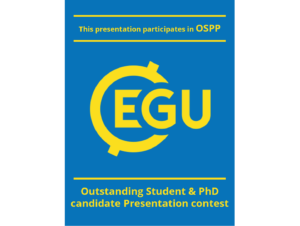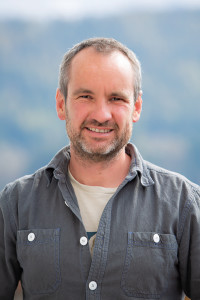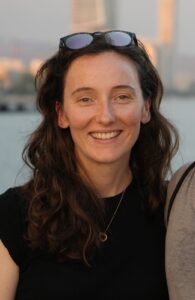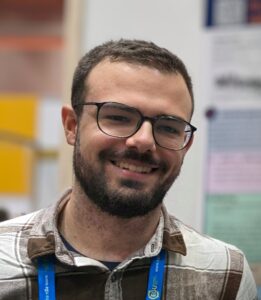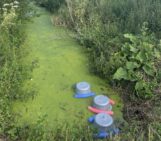The Abstract deadline for the 2025 General Assembly is approaching fast (January 15th!) and with it the deadline to sign up for the OSPP award. If you are an early career researcher who is interested in joining the contest, this is you! We talked with the coordinators, as well as some of last year’s winners to help you understand how to sign up, why to sign up and what to look out for.
We first talked to Albin Hammerle, one of two OSPP coordinators for EGU’s Biogeoscience Division.
How to get involved in the OSPP and why?
Albin: The OSPP Awards are open to students and PhD candidates who are presenting their work at the EGU General Assembly. You can register for the OSPP competition when you submit your abstract to the EGU General Assembly, where you’ll have the option to indicate your interest in being considered for the OSPP Award.
The OSPP is a highly respected award within the scientific community. Being selected as an awardee will give your research recognition from leading experts in the Earth sciences field. The competition also gives you a platform to practice and improve this skill in front of a large, diverse audience. The judging process provides constructive feedback, helping researchers refine their scientific communication and presentation techniques. Lastly, the EGU General Assembly is one of the largest gatherings of Earth scientists, and participating in the OSPP competition exposes you to a vibrant community of researchers, including potential collaborators, mentors, and future employers.And of course, being recognized by the EGU as an outstanding presenter is a fantastic addition to your CV.
Who can take part in the competition?
Albin: To participate in the competition, you must either be a current BSc or MSc student,a PhD candidate or a recent BSc, MSc or PhD graduate (conferral of degree after 1 January of the year of the conference), who is presenting their own thesis work. And of course, the applicant has to be the first author and personally present a poster or PICO at the conference. The process is straightforward: once you’ve submitted your abstract and opted into the OSPP contest, you’re officially in the running for the award.For full details on how to apply, including the selection procedure and eligibility criteria, check out the EGU’s official page here: https://www.egu.eu/awards-medals/application-and-selection-procedure-for-ospp-contest/
What Are the Judges Looking For?
Albin: It’s important to note that the OSPP competition isn’t just about the appearance of your presentation; it’s a holistic evaluation of both your research and your ability to communicate it effectively. Judges will assess several key factors when evaluating your work:
- Clarity and Quality of the Research: Your research should be original, well-defined, and impactful. This is your chance to demonstrate the scientific value of your work and its relevance to current issues in Earth sciences.
- Presentation Skills: Judges will pay attention to how well you can communicate your findings to an audience. This includes your ability to explain complex concepts clearly and concisely.
- Ability to Answer Questions: Your ability to respond to questions and engage in thoughtful discussion is just as important as the content of your poster or presentation.
- Poster Design: While presentation skills are key, the design of your poster also plays a significant role. A well-organized and visually appealing poster that effectively communicates the core message of your research can enhance your chances in the competition.
You will receive detailed feedback on all these aspects after the conference, so independent of whether you’ll be selected for the award, you’ll definitely learn something in the process!
We next talked to some of last years OSPP winners, to hear from their experience. Hannah Muir is a PhD candidate at Swansea University and the National Oceanography Centre Southampton an one of last years OSPP winners in the Biogeosciences Division. Alexander Platter is a PhD candidate at the University of Innsbruck and one of last years winners in the Atmospheric Science Division.
What was your poster/presentation about and how did you chose to present it?
Hannah: I designed a poster on my PhD research, “Developing the first national blue carbon inventory for the Isle of Man”, to raise awareness of blue carbon science and to highlight how research can be used by Governments for environmental management.
Alexander: In my poster, I presented results from my Master thesis, where I tried to get a better understanding of ecosystem CO2 exchange from an atmospheric science perspective. More specifically, I took a look into filtering techniques for eddy covariance measurements of CO2 fluxes to improve CO2 budget estimations.
What was your experience taking part in the contest, how did the evaluation work?
Hannah: I enjoyed taking part in the OSPP contest as it gave me extra motivation to design an eye-catching poster that I thought would stand out. There was a constant stream of people around my poster from start to end of the session, many of whom I chatted with, so I wasn’t actually aware of who was judging my poster for the contest. This made it enjoyable, as it just felt like chatting with people rather than being in a contest.
Alexander: Having this competitive element in the back of my mind already during the design process was a pleasant motivation for me personally. During my poster presentation, I was happy to see plenty of people come around that were genuinely interested in my work. I already found that a good reason to participate in the OSPP, as then likely more people come around. I actually didn’t notice a lot about the evaluation, so I didn’t feel pressured by it at all.
Can you share something you have learned from taking part in the OSPP?
Hannah: Initially, I thought taking part in the contest would add an element of stress to my time at the EGU General Assembly, but in fact it gave me more purpose and was very low-key and easy to enter. I also found that trying to align my poster with the judging criteria helped me to think about the audience more, and probably enhanced the clarity of my poster.
Alexander: Participating in the OSPP pushed me to pay close attention to how to present in the most meaningful way, leading to several little learnings on how to tackle some details. Especially, anticipating potential discussion points allowed me to view my findings from a fresh perspective, escaping the tunnel vision that often accompanies daily research.
And advice or tips for people considering taking part in the contest?
Hannah: I think it’s important to have fun with a contest like this. The feedback I received from the judges was about how my enthusiasm for my research shone through and about how I’d drawn connections between my scientific outcomes and policy implications. I think people like to learn about topics in an engaging way, with lively discussions and the broader context, which is also more fun to deliver as a presenter!
Alexander: I found it helpful to look at some posters of previous OSPP winners and see how they tackled some design decisions, but I still tried to find my own way to present my findings appropriately. I’m definitely happy that I participated in the OSPP and I would recommend it for everybody who has the opportunity, as in the worst case nothing happens and, independent of the outcome, it can lead to constructive discussions and feedback that would not arise otherwise.
Thank you all for taking the time to answer our questions!
This year’s deadline to submit an abstract and thus sign up for the OSPP contest is on January, 15th, 2024. Here you can find more information about the contest. Good luck preparing your posters and PICOs and fingers crossed from the BG division team. We’re sure you’ll do great!

